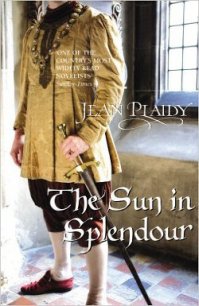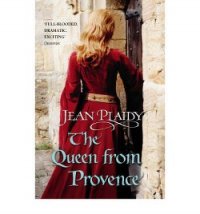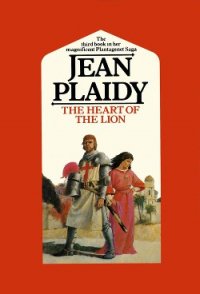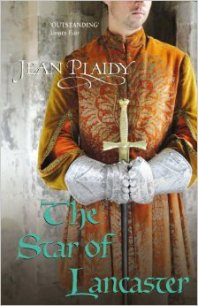The Follies of the King - Plaidy Jean (электронная книга TXT) 📗
He rode forward on his small grey mare, an unimpressive animal but
surefooted and chosen for this reason. He was clad on his helmet he wore a circlet of gold that all might recognize him as the King, and in spite of his somewhat unkingly mount there was that about him which inspired men and
never had it been more apparent than at that moment.
He spoke in clear ringing tones. The enemy was close. Many of the men
here this day would remember the bloody battles between Scotland and the late King. That King was dead now and he believed they had little to fear from his son.
‘If there is a man among you who is not fully resolved to win this field or die with honor, let him throw down his arms and go. I want no such man in my army. I would rather have but half the men who stand before me now and they good brave men, loyal to Scotland, than double the present numbers with traitors or reluctant men among you. Now is your chance. Speak now if you will. I offer you liberty to go or stay.’
There was a deep silence. Bruce’s heart was beating uncertainly. What if
there cowardly men among them? What if they, sensing death close by? for
assuredly it would come to some this day— grew faint-hearted and thought with longing of their bairns and their firesides away in some remote comer of
Scotland far from St Ninian’s and Bannockburn?
Not a movement in the ranks. Not a sound to be heard but the ripple of the burn.
Then a great shout went up. ‘Victory for the Bruce and Scotland forever.’
I have good and faithful men to serve me, thought Bruce. That augurs well for Scotland.
???????
Edward’s great desire was to get the battle over. He had no doubt of the
outcome. He had a fine army. If his father were looking down on him now he would be pleased with him. The Scots could not stand out against him. He had been angry because of those barons who had refused to join him but now he
laughed to think how sorry they would be when he returned victorious to
England.
The first thing to do was relieve Mowbray at Stirling Castle. That would
be a fine gesture. He sent for Sir Robert Clifford and ordered that he take an advance party of eight hundred cavalry and capture the castle.
Sir Robert rode off. It was certain that the Scots would be expecting this move. Stirling Castle was a strategic point and it was to relieve the governor that the English army had come to Scotland. He must therefore be wary. He knew
where the enemy army was situated and instead of taking direct route which could have resulted in his being seen, he with his men rode quietly round the village of St Ninian’s taking care to keep themselves out of sight as much as possible. Thus Randolph Earl of Moray whom Bruce had commanded to be
watchful of just such a move did not see what was happening and it was Robert the Bruce himself who caught sight of Sir Robert and his band making their way cautiously to the castle.
The Bruce rode hastily to Randolph and demanded to know what this meant.
‘You have thought too lightly of the charge I gave you. A rose has fallen
from your chaplet this day, nephew.’
Overcome with horror Randolph rode off immediately in pursuit of Clifford
who hearing the approach, gave the order to his men to wheel round and attack.
Randolph had only five hundred men and he was out-numbered but he
formed his troops into a square with spears held before them. The English rode forward but they could not break through the Scottish spears and Clifford gave the order to surround the Scots. The English cavalry was heavily armed and the Scottish weapons were only their long spears, short knives and battle-axes. The Scots put up a magnificent fight but they were against the heavy arms of the English cavalry and surrounded as they were, it seemed inevitable that they must be defeated although they might inflict heavy casualties upon their
opponents.
Bruce was watching the affray from some distance, Sir James Douglas
beside him.
‘By God, my lord,’ said Douglas, ‘this will be the end of Randolph. I must go to his aid.’
‘Nay,’ said Bruce. ‘To do so would mean a change of our plans. Randolph
should have stopped them before they got so Let him fight his way out of this.’
‘It will be death for him. They will be wiped out? the whole force.’
While the conflict between Randolph and Clifford was in progress the
English army had been brought to a halt while it was considered whether to begin battle that day or wait until the next. Both men and horses were tired from the long march and it was finally decided that the following day would be more appropriate.
Robert the Bruce was of the same mind regarding the time to begin the fight.
The possible loss of Randolph had meant that he must make certain adjustments to his plans, and he was riding along the line of his army, seated not on a warhorse but on his small grey mare, carrying as his only weapon his steel battle-axe when he was seen by one of the knights who was suddenly filled with a desire to win glory for himself.
The de Bohuns belonged to one of the leading families of the nobility and
their prestige had been greatly enhanced when Humphrey the fourth Earl of
Hereford and third Earl of Essex had married Elizabeth, the daughter of Edward I after she had been widowed by the Earl of Holland. It was true that the King might not have chosen this match for his daughter but Elizabeth had taken a fancy to Humphrey de Bohun and declared that as she had married once for state reasons she should be allowed the second time to marry as she wished.
Such a connection was highly desirable and Humphrey’s young nephew, had
the sudden wild urge to bring greater glory not only to the family but on himself and so win the admiration of his influential uncle.
There was Robert the Bruce, the King of the Scots, already a legend, and de Bohun remembered the old and honoured custom that battles could often be
settled by single combat and that if the leader of an army could be thus slain, the battle all but won.
What honour would befall the de Bohun family and in particular, Sir Henry
if he called out the mighty Bruce and slew him? And there he was seated on a small grey mare? with nothing but a battle-axe in his hand and the only reason he could be seen to be the King was due to the golden circlet he wore over his helmet.
Young Sir Henry rode forward.
Robert the Bruce was taken momentarily by surprise. He glanced at the
young rider magnificently equipped on a fine warhorse, armed for battle. It was madness to answer the challenge. He was seated on his steady grey mare. She was agile and surefooted in marshy land but how could she stand up to this mighty armoured figure?
To refuse the challenge was unthinkable yet to take it was perhaps
foolhardy. But he must take it. He could imagine the rejoicing there would be in the English ranks if it was said he was afraid to ride out against the young knight.
He had to go into the attack and he had to act promptly.
He heard the gasp of those around him as he spurred the grey mare and rode out to meet de Bohun.
‘Madness, madness!’ murmured Douglas and he thought: Where will this
day end? Randolph on the point of being taken by the English, the King accepting this unequal challenge?
The hoofs of the warhorse pounded the earth as de Bohun, lance ready, came thundering towards Robert the Bruce.
The Scots watched with fear, the English with exultation. There was
scarcely an English soldier who did not wish he was in de Bohun’s shoes. His name would be remembered forever.
Then the surprise. The lance should have pierced the Bruce’s heart but it did not for with incredible agility he swerved at the important moment. The lance thrust missed him and raising himself in his stirrups Bruce lifted his battle-axe and brought it down on de Bohun’s head which was all but cleft in two.




